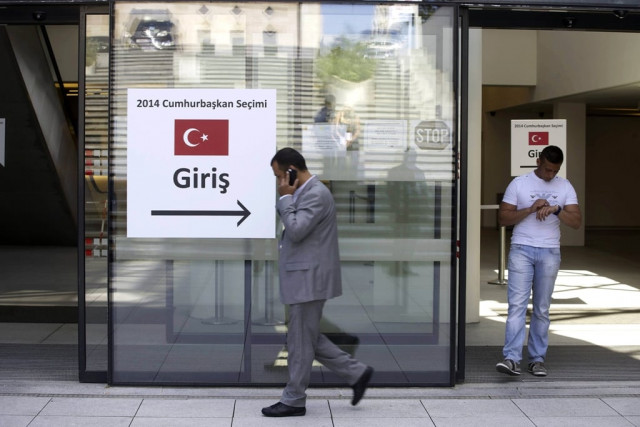Turkey's 11 presidents from Ataturk to Gul
Turkish voters will directly elect their head of state for first time in country's modern history in Sunday's election

Turkey's president is a largely ceremonial figure but holds some important powers and Erdogan is expected to seek to expand the role if he takes office, by changing the constitution.
Here is a look at Turkey's 11 presidents since the foundation of the modern Turkish state in 1923:
Ataturk was the founding father of the secular republic born out of the ashes of the Ottoman empire in 1923. His 15-year presidency saw the abolition of the Islamic caliphate, introduction of deep-rooted reforms in every sphere that made both government and education secular and aimed at making Turkey attain the level of Western civilisations.
A comrade of Ataturk in action and ideas, Inonu ascended to the presidency after Ataturk's death and received the title of "National Chief" having been elected permanently leader of Ataturk's secular CHP party. Inonu managed to keep Turkey largely outside World War II and played key role in switching to a multi-party system in the aftermath of the war.
During Bayar's presidency, Turkey used US aid under the Marshall Plan, its troops fought in the Korean War and the country joined Nato in 1952. Bayar was ousted in 1960 by a military junta headed by General Cemal Gursel which placed him, prime minister Adnan Menderes, and several hundred others on trial. Menderes was executed. Bayar's sentence was commuted to life imprisonment in 1961. Because of ailing health, he was released in 1964 and pardoned in 1966.
After the 1960 coup, he headed the national unity committee formed by the military. He played a key role in drafting a new constitution for Turkey's transition to democracy again. Due to deteriorating health in 1966, his presidency was terminated by the parliament.
Another military man, Sunay served as chief of general staff in 1960, and retired from the army in 1966. The same year he was elected president by parliament.
A one-time chief of the Turkish navy, Koruturk presided over the Turkish invasion of northern Cyprus in 1974 in response to a coup aimed at uniting the island with Greece. Martial law was declared in 1980 after civil violence between rightists and leftists claimed over 2,000 lives. A military National Security Council held office from 1980-1982 during which there was no president.
As head of the armed forces, Evren seized power in a pre-dawn assault on September 12, 1980. A new constitution was approved in 1982 with the provision that Evren would remain head of state until 1989. The ailing former president was sentenced to life in prison in June 2014 for his role in the 1980 coup.
Ozal was seen as a moderniser who led Turkey after a period of military rule following the 1980 coup. He directed Turkey's economy toward the free market. An ethnic Kurd, Ozal repealed the ban on speaking Kurdish and was seeking a negotiated solution to the conflict in the southeast.
A veteran politician who served as prime minister seven times, Demirel came from humble roots. But his presidency saw financial crisis in 1994 and intense clashes with Kurdish rebels. Kurdish rebel leader Abdulah Ocalan was captured in 1999 and brought back to Turkey.
Previously head of Turkey's top constitutional court, Sezer was a staunchly secular president, which caused divisions between him and the Erdogan's Justice and Development Party (AKP) government on a series of issues. He openly said the secular regime was under threat and warned attempts to bring religion into politics were stoking tensions.
The first attempt by Gul, a co-founder of the AKP, to become president in April 2007 sparked a political crisis. The crisis forced snap general elections in July in which the AKP won a huge majority, which it hailed as a popular mandate to renominate Gul, a pious man whose wife wears the Islamic headscarf. Gul is largely seen as the moderate face of the AKP in stark contrast to Erdogan.



















COMMENTS
Comments are moderated and generally will be posted if they are on-topic and not abusive.
For more information, please see our Comments FAQ